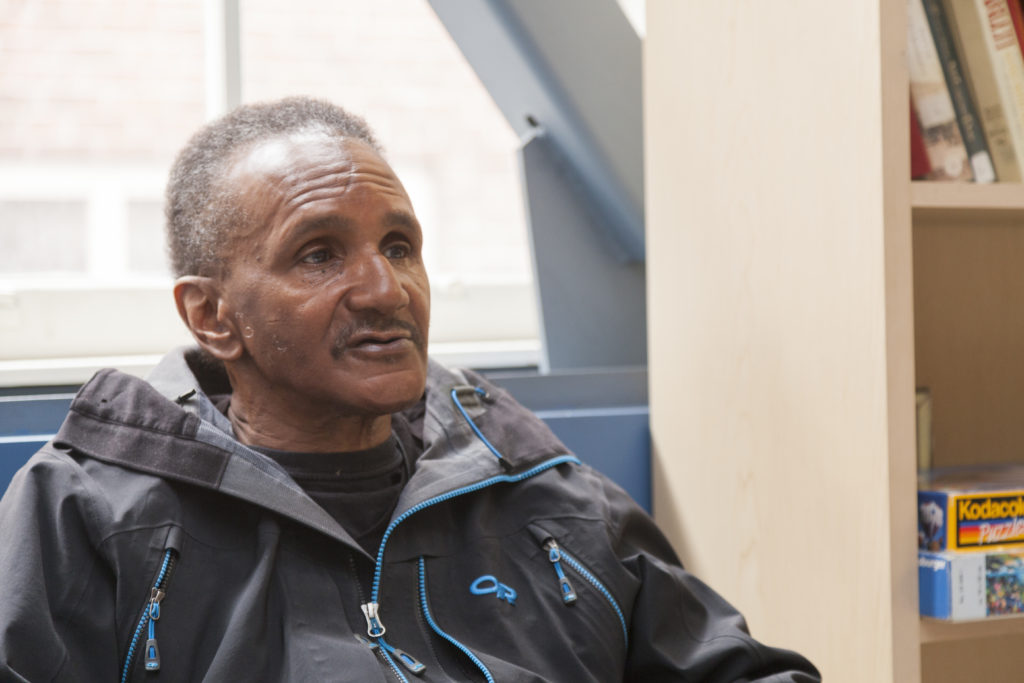
Jimmie has a warm smile and a determined gaze, and his bright eyes belie his sixty-seven years. “There’s hope everywhere I go,” he says. “It’s difficult, but I can’t give up.”
Jimmie’s very transparent about his background. “My criminal history has haunted me my whole life,” he says. “I was 17 years old. I got involved with the wrong people, but it was just the way of living in the days I came up in.” Jimmie goes on to describe how, in spite of serving his time and seeking to better himself, he continually found himself at dead ends. His involvement with the criminal justice system led to homelessness and barred him from many housing options.
“You get locked, trapped in a situation,” he says, and it’s hard to find a way out. Jimmie’s situation is hardly unique; formerly incarcerated people are ten times more likely to experience homelessness than the general public, and those who experience homelessness are more likely to be arrested and incarcerated. In addition, 62% of those experiencing chronic homelessness in King County reported having been in jail or juvenile detention—which is 15% higher than the general homeless population.
That’s why Plymouth follows Housing First practices. We believe housing is a human right, and we know that lowering the barriers to housing enables people to rebuild their lives. As Jimmie says, “Having a roof over my head gives me room to make some decisions.” And one of Jimmie’s decisions was to find work at a local food bank so that he could help those currently experiencing homelessness.
Jimmie has been through more than his share of ups and downs, but his forward outlook and desire to help others have survived the hardships. “You’ll love his positivity!” says Kris, his housing case manager. And she’s right: Jimmie’s steady hope makes him an inspiration.